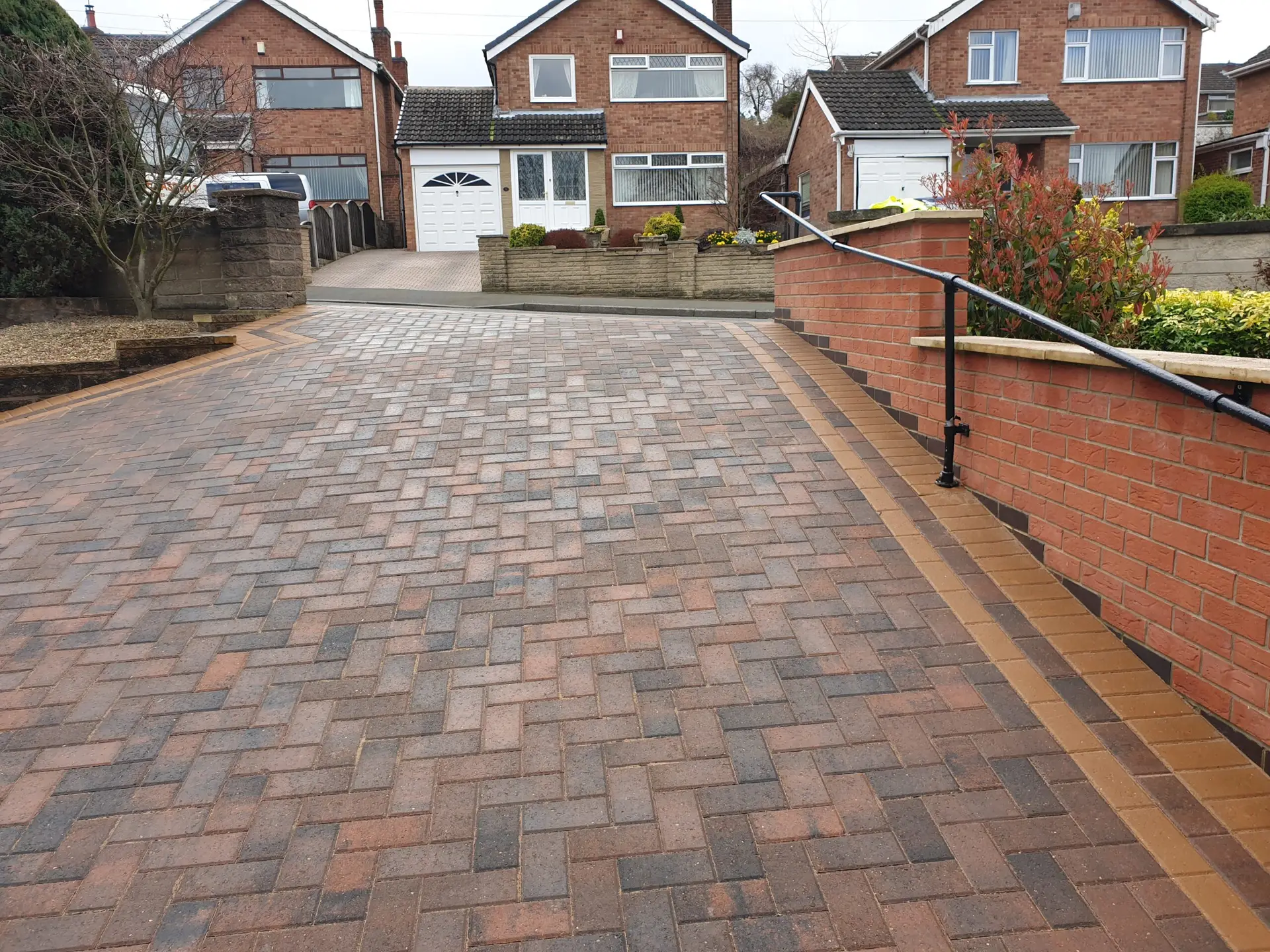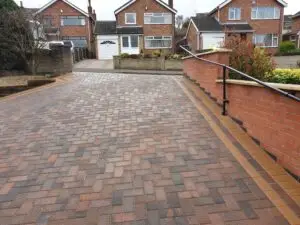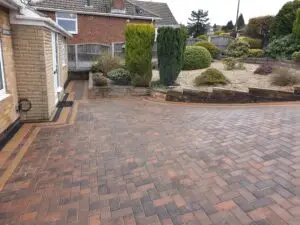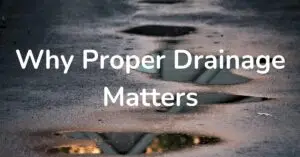Permeable block paving is an innovative solution designed to tackle urban drainage issues while offering an attractive, durable surface for driveways, patios, and walkways. Unlike traditional paving methods, permeable paving allows water to pass through the surface into a specially prepared sub-base, reducing runoff and promoting natural groundwater recharge.
Understanding Permeable Block Paving
Permeable paving systems consist of porous blocks separated by gaps that are filled with a permeable aggregate. These gaps allow rainwater and runoff to filter through the surface layer and into the ground beneath, effectively managing water drainage without the need for additional drainage systems.
The Benefits of Permeable Block Paving
Permeable block paving offers several advantages, making it an increasingly popular choice for residential and commercial projects:
- Reduced Flood Risk: By allowing water to permeate through the surface, permeable paving minimises the risk of flooding and water pooling.
- Eco-Friendly: It supports sustainable urban drainage systems (SUDS), reducing the impact on local sewer systems and promoting natural water cycles.
- Durability: Designed to be as durable as conventional paving options, permeable block paving can withstand heavy traffic and harsh weather conditions.
- Aesthetic Appeal: Available in various colors, shapes, and sizes, it provides aesthetic flexibility to match any landscaping design.
Installation Process
The installation of permeable block paving requires careful preparation to ensure its effectiveness and longevity:
- Site Excavation: Remove existing surfaces and excavate to the required depth to accommodate the sub-base, base, and paving layers.
- Sub-Base Layer: Lay a thick layer of crushed stone, which acts as a reservoir for the water passing through the paving.
- Base Layer: Add a layer of smaller aggregate on top of the sub-base for additional filtration.
- Laying the Blocks: Install the permeable paving blocks, ensuring gaps between them for water infiltration.
- Filling the Gaps: Fill the gaps between the blocks with a fine, permeable aggregate to facilitate water passage.
Maintenance and Care
Maintaining permeable block paving is straightforward:
- Regular Cleaning: Keep the surface free from debris to prevent clogging the gaps.
- Occasional Deep Cleaning: Use a pressure washer gently to remove any buildup in the pores of the paving and gaps.
Applications for Permeable Block Paving
Beyond driveways, permeable paving is ideal for a variety of applications, including patios, walkways, and even parking lots. Its versatility and environmental benefits make it suitable for both new constructions and renovation projects looking to improve drainage and reduce flood risk.
Technical Specifications and Performance
Permeable block paving is designed to meet the demands of both aesthetic appeal and functional efficiency. With high load-bearing capacities and a lifespan comparable to traditional paving solutions, it represents a smart investment for any project. The materials used in permeable paving are rigorously tested for environmental impact, ensuring a product that’s not only durable but also eco-friendly.
Design Ideas and Inspiration
Choosing permeable block paving does not mean compromising on design. Whether you’re aiming for a minimalist look with clean lines or a more intricate pattern incorporating various colours and shapes, permeable paving offers the flexibility to bring your vision to life.
Cost Considerations
Investing in permeable block paving is investing in your property’s future. While the initial cost may be higher than traditional paving options, the long-term savings on drainage infrastructure and the potential for reduced flood damage make it a cost-effective solution. Furthermore, some jurisdictions offer incentives for sustainable building practices, potentially offsetting some of the initial expenses.
Environmental Impact
The environmental benefits of permeable block paving are significant. By facilitating natural water drainage and recharge, these systems play a crucial role in preventing runoff pollution, reducing the heat island effect, and supporting local ecosystems. Incorporating permeable paving into your project contributes to a greener, more sustainable environment.
Conclusion
Permeable block paving is more than just a practical solution for managing stormwater. It’s a durable, eco-friendly, and aesthetically versatile option that enhances the beauty and functionality of outdoor spaces. Whether for a residential driveway, a commercial parking lot, or a public walkway, permeable block paving offers a sustainable, attractive solution that meets today’s environmental challenges.








